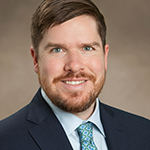RPC Professional Liability Consultants
Ronald T. Luke
JD, PhD
President
Brian Piper
PhD
Senior Consultant
Angela VanDerwerken
PhD
Senior Consultant

What is professional negligence?
Professional negligence occurs when a physician, lawyer or other professional breaches a duty to their clients. Clients are entitled to a standard of care expected from the average provider or specialist in a particular field. When a professional fails to meet this standard, and his or her negligent actions cause significant financial losses or physical harm, damages may be sought.
Professionals have a higher duty of care to clients than an ordinary person. Exercising prudence, paying attention and taking proper precautions to prevent harm is not optional for the professional. This duty of care exists for professions tied directly to the physical safety of the client such as physicians and pilots, but it also applies to attorneys, accountants and other professions that provide critical advice.
Not every dissatisfied client has a valid claim for professional negligence. The plaintiff must prove there was professional negligence and that the negligent acts or omissions caused damages. The critical issue in any professional liability case is proving this conduct dropped below the generally accepted standards for the profession.
Expert witness testimony is a crucial element of every professional liability case. There are usually two experts each for the plaintiff and defendant: a liability expert and a damages expert. The liability expert is in the same profession as the defendant, provides opinions on the standard of care and whether the defendant met it. The damages expert is often an accountant or economist who provides opinions on the financial damages caused by the negligence. Expert witnesses can also opine on whether the defendant acted in good faith, which is the determining factor for punitive damages.
Medical Malpractice
A medical malpractice case is a specific type of professional negligence case that occurs when a doctor, nurse, therapist or healthcare provider is accused of breaching the duty of care. The burden of proof in a medical malpractice case is the same. The plaintiff must prove the physician acted with care less than an average physician.
There are several types of economic damages in medical malpractice cases. A damages expert provides opinions on elements of “special damages.” These are past and future financial damages such as medical expenses, loss of earning capacity, and loss of household services.
Professional Negligence in Commercial Litigation
Professional negligence can give rise to commercial litigation in a wide range of circumstances — from legal and accounting malpractice to design and construction defects in commercial buildings. Besides the direct damages, these cases often involve consequential damages because of business interruption or loss of business opportunities. Consequential damages can be much larger than direct damages.
Analyzing consequential damages requires an understanding of the economics of the affected business and an ability to organize and analyze accounting data. In some cases, consequential damages analysis requires market analysis to control for factors affecting the business other than the alleged negligence.
How RPC Can Help Plaintiffs and Defendants
RPC provides damages opinions in professional negligence cases. We have over 30 years supporting plaintiff and defense counsel in cases involving physicians, lawyers, architects, engineers and accountants. Depending on the specific needs of a case, RPC has economists, accountants, life care planners, vocational evaluators and physicians to provide expert damages analysis, reports and expert testimony.
- In medical malpractice cases RPC can analyze reasonableness of charges for health services, future medical expenses (life care plans), loss of earning capacity, and loss of support.
- In commercial cases we can analyze accounting and market data to determine direct and consequential damages.
Contact us for a document review and initial discussion at no obligation.




